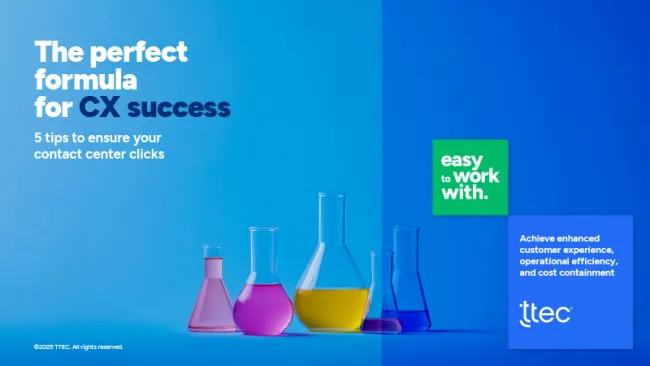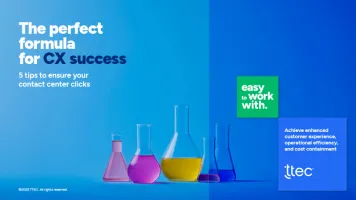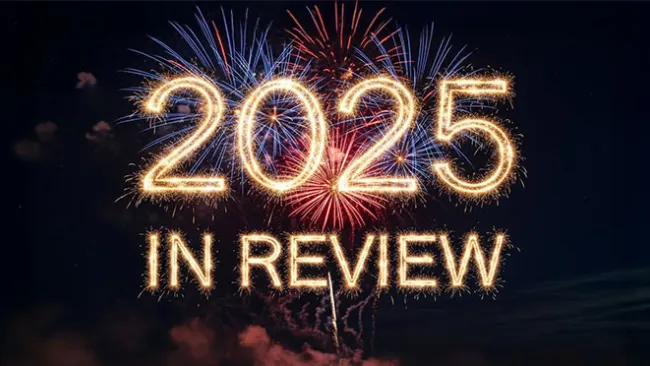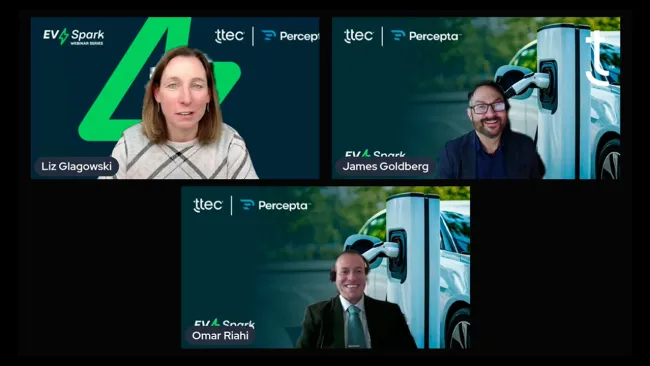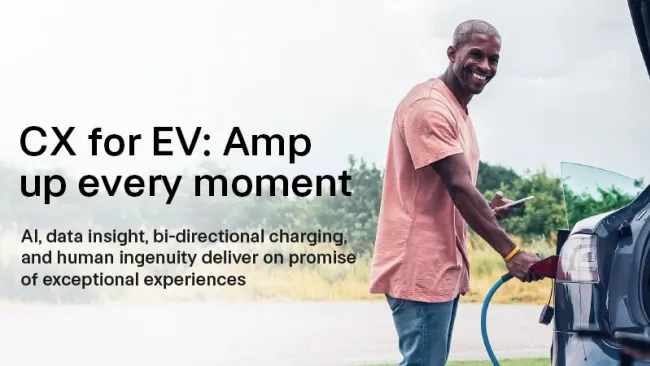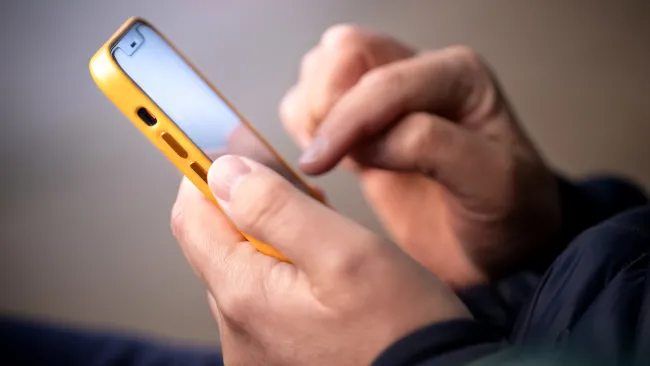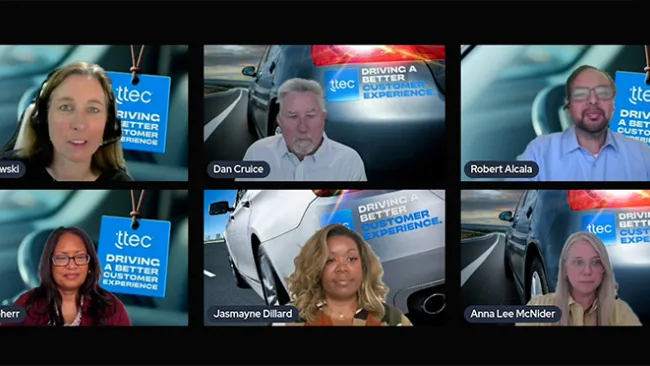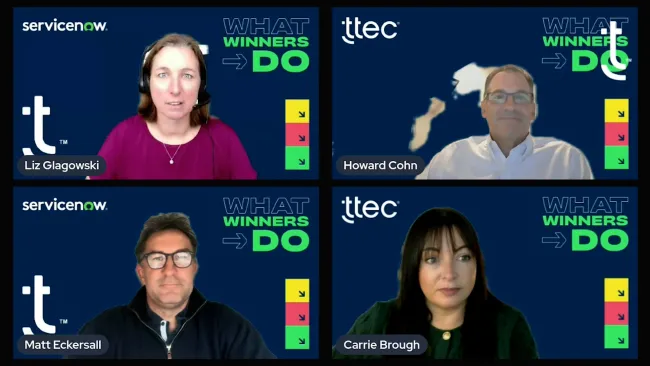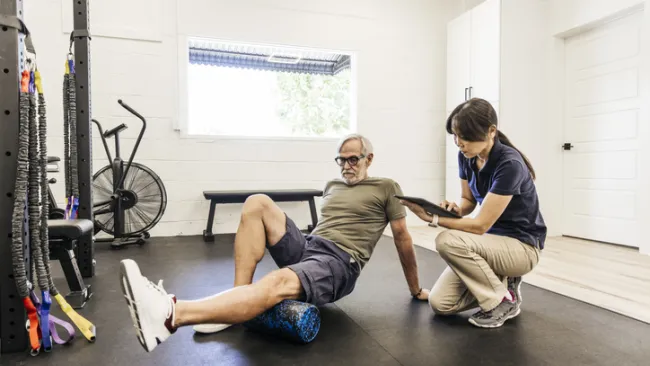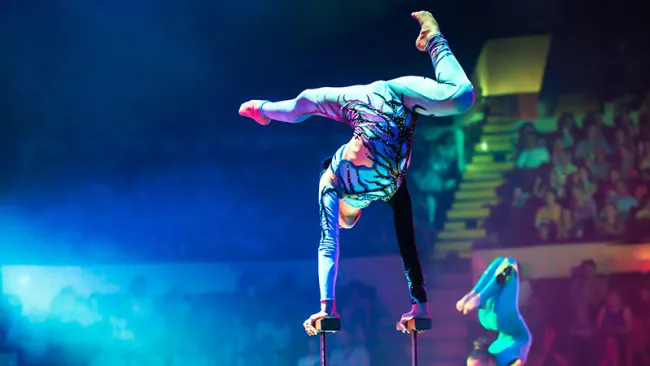Evan Horowitz, CEO of the creative firm Movers+Shakers, takes us behind the scenes of some of his firm’s most viral TikTok campaigns, explaining how e.l.f Cosmetics’ #eyeslipsface generated over 6 billion views on the video app and millions of user-generated videos. Horowitz also shares tips on telling authentic stories on TikTok and where he sees opportunities for brands to best engage users.
Key Takeaways:
- Despite TikTok’s recent political turmoil, it’s business as usual for marketers and consumers
- TikTok’s use of algorithms and artificial intelligence is changing the dynamics of social networks
- The COVID-19 pandemic is “aging up” the video platform with older and more diverse audiences
Transcript:
Judith Aquino: Hi, welcome to the CX pod. I'm Judith Aquino. Today we'll be talking about what marketers need to know about TikTok, the incredibly popular video app. Joining me in this discussion is Evan Horowitz, CEO of Movers & Shakers, a creative firm that has produced some of TikTok’s most viral campaigns. Welcome to the show, Evan!
Evan Horowitz: Thank you so much. Great to be here.
JA: And so before we talk about today's news about TikTok, can you tell me what makes this video app such a compelling platform for consumers and marketers?
EH: Yeah. Compelling is a good word for it. We've just seen a meteoric rise and usage of the app. I mean, a couple of years ago, no one had ever heard of it. Pretty much all of Gen Z was on it and extremely active spending more time on there than any other social app. And this year it's just, it's just growing so fast that it makes the previous year's growth look sleepy.
Quarantine has led a lot to that just with people being at home more, but we've seen TikTok age up faster than any platform in history. So now most millennials are quite engaged in the app and it's aging up. Even beyond that, I think it's really driven by a really unique environment that TikTok has created. It's extremely entertaining. And I think that's what you'll notice when you first downloaded the app, they take the TikTok algorithm, does a great job of really learning who you are and what your interests are, and starting to very quickly show you things that you'll enjoy similar to how YouTube algorithm is recommending content for you, but TikTok, I think just does an even better job than YouTube and within minutes to hours of spending time on TikTok, you'll just find yourself drawn in.
JA: Right. And you've seen a lot of success from TikTok. I mean the Eyes Lips Face campaign garnered, what was it? Over 5 billion views, I think. And millions of user generated videos.
EH: Yeah. Yeah. We have as an agency, Movers and Shakers has had over 60 billion views now on our TikTok campaigns, that's a billion with a B still trying to get my head around that. I think that that speaks to our success, but also speaks to the power of TikTok to create engagement on a scale that we've never seen possible on any other platform.
JA: And so to recap the past 48 or 72 hours, we started the weekend with the news that TikTok would be banned from app stores by midnight, Sunday. And now we learn today that the app will be spun off from its parent firm ByteDance, which has stated it will hold an 80% stake in the new company. And now Oracle will become TikTok cloud provider while Walmart will harness its omni-channel retail capabilities. What does all of this mean for your company?
EH: I don't think it really means that much for marketers. At least not in the short to midterm. It just means that TikTok going to continue to be the great place TikTok has already, always been. So, you know, the change in control is not that significant, even in terms of the structure ByteDance is still in control of the app. The new partners just ensure that stability that I think we're all looking for from a political standpoint, so that we can continue to just do the great work we're doing and from a marketing front and from a consumer perspective, it's just business as usual.
JA: All right. And I'm curious, what are your thoughts on TikTok as an AI driven platform and what, what do you think its lasting impact would be on social networks and brand marketing?
EH: Yeah, TikTok has definitely changed the dynamic of social networks. Artificial intelligence is a huge part of that. You know, when we were talking earlier about the algorithm and how smart the algorithm is, it just, it's just better than any, any other social media platforms, algorithm for learning about people and showing you things that you love. So one of the really interesting things about TikTok is if you take my phone and you open my TikTok app, and if you take your phone and you open your TikTok app, you wouldn't even think you're on the same app. Like it's just going to feel so different. One person is going to see tons of puppies and baseball and cooking. Somebody else is going to see basketball and beauty and, you know, car repairs because all of these communities exist and TikTok quickly gets a sense of what you're into and funnels you into these places that you don't really enjoy and that's all through their AI.
JA: And so when you plan a campaign, do you have teams, do you have any data science teams, for example, helping figure out like what type of content would be most successful on TikTok’s platform?
EH: It's not a data science project. It's really a human project. And I think where our team really excels is understanding culture in a very human way.
JA: Can you elaborate on that? Take me through the anatomy of one of your campaigns and how, how does that align with the TikTok algorithm?
EH: Well TikTok’s algorithm is so good at showing you what you want, so that's why it's not a data science project. It's a human project. If we create something that people are going to want to engage with, TikTok’s algorithm will serve it to them. And that's really where the expertise comes in and creating by reality and TikTok is really understanding what do people want. So to give you an example of a campaign, our most famous campaign, certainly the e.l.f Cosmetics hashtag webspace campaign, which set the record for fastest ever to a billion views, most viral campaign in TikTok’s US history, had 5 million videos created, which is totally unheard of. I think, you know, there's a lot of insights that went into that, but you know, that the base of it is understanding what are people looking at?
EH: A lot of that in this campaign was driven by the music. The brand insight that we came up with for the campaign was e.l.f stands for eyes, lips, face, and most people don't know that. And so we wanted to create a campaign that would really spread that message. And we decided to do that by creating a song, the song that we created, people loved it. And it was really through, I think the songwriting and insights that we had into the type of music that's trending that way to write songs that people love. And then also how to customize that for just 15 seconds and TikTok track. That was a huge part of the success. And so, again, not, not a data and insights thing, it's really just an understanding of people and culture and creating music that they got super excited.
JA: Right. So really understanding your target audience, or I guess for me, I would translate that as being really customer centric. What advice though, do you have for brands who aren't quite, who might just want to experiment on the platform or can you, should you only go into it if you know exactly what will resonate with your audience?
EH: Yeah, I mean, I wouldn't put too much pressure on yourself. I think experiment is a great word. It's a very different world than other social platforms. And so it can be a bit intimidating at first and experimenting and testing and learning is definitely the way to do it. Easy ways for brands to experiment on TikTok is doing a simple ad campaign TikTok has recently opened a self-service platform. So it's very accessible to advertisers that want to spend even just a little bit of money and test it out that way. Another easy way to do a test on TikTok is to hire some influencers and see how that does for you. Those are two very quick and cost effective ways to just get a feel for the platform.
JA: And what are you seeing in terms of TikTok’s potential as an e-commerce player?
EH: Yeah. I mean, we know that that's TikTok’s future. If you look at Douyin, which is the Chinese version of TikTok, it is years ahead of TikTok just from a developmental standpoint and the Chinese economy in general, it's just much more e-commerce driven than the West, but Douyin is a very sophisticated e-commerce platform. TikTok, not so much. I mean, TikTok is, it's still really more of a top of funnel place for marketers. They do offer traditional ads that allow click outs. And so there are direct response opportunities, but calling it an e-commerce platform is definitely we're not there yet. It is in the roadmap for sure. And I expect to see increasing opportunities for brands to drive direct e-commerce traffic. You know, there's a lot of beta programs right now with influencers. For example, you could have a click out on an individual post, things like that, that they're testing. But I would say for now, you know, it's important for marketers to think of TikTok as a top of funnel platform, primarily more suited for brand awareness and brand equity.
JA: And for your clients, what are the most common success factors that they look for? Like what, what are the, the main KPIs that they want?
EH: Yeah, well, with these top of funnel campaigns, it is more engagement metrics. So for our big viral challenges, we're looking at how many people actually join in and create videos. We're looking at how many views do all those videos get. And we're often doing brand lift studies to see, you know, was there a measurable brand lift and how much, so that's really the focus for these big viral challenges.
We're also building a lot of brand channels and that's a really great opportunity now for brands to be a first mover on TikTok. There's still a lot of industries that have very little, very, very little presence on TikTok from an organic standpoint. So that's very exciting. And there, of course, we're looking in terms of KPIs at growing the channel, how can we grow followers? How can we grow engagement? And we've done really well at outperforming the competitive set in growing channels really quickly.
This is a great moment to be on TikTok. If you remember when Facebook was new or Instagram was new and brands that had an organic presence early on were able to grow a lot faster than brands that started later. And that window is still open for TikTok. And lastly, I would say for direct response campaigns, you know, it's more of the traditional metrics that you're looking for performance campaign in terms of click-throughs and that sort of thing.
JA: Okay. And I saw that Glossy quoted you saying that by 2021, pretty much all the brands are going to be there on TikTok. So given, you know, where we are now, is it harder now for brands to stand out on TikTok?
EH: It's harder than it was a year ago, but there's still so much opportunity. You know, I mean, Movers and Shakers is one of the very, very first companies on TikTok. We've been there since last summer, when there's only, you could count on two hands, how many brands had participated on the platform. So we've seen the growth has changed a lot. And for sure at that time, it was a totally open playing field, but there's still a lot of white space. And what we see now as consumers are increasingly joining the platform, there's whole new demographics that aren't really being spoken to by brands.
So in the last few months we've been launching a lot of millennial focus brands on TikTok, creating brand channels for them. And that's a huge opportunity, you know, where nobody's talking to them millennials yet we're working with some fashion companies right now to launch them on TikTok and create their brand channels. And there's very few fashion companies that are on TikTok. So there's still a lot of opportunity for first movers and to really help own and shape the conversation about your business on TikTok.
JA: Great. And so speaking of conversations around different generations, are you hearing different requests for targeting millennials versus Gen Z?
EH: Yeah. It really comes from the brand strategy. Some of our clients very focused on Gen Z, others are focused on millennial or there's a crossover on even gen X and boomers are increasingly on TikTok as well. So depending on who the brand is trying to reach, you know, we're thinking about different strategy and the tone of those conversations is different. Like if you compare the typical millennial focus content on TikTok, it does look and feel somewhat different than typical Gen Z content, for example,
JA: Oh, can you elaborate? What are some of the key differences? And I'm speaking as one of the older millennials.
EH: I feel you well, one thing that's so interesting about Gen Z and sort of odd or off putting I think to older people is that they really have no filter. They grew up with a phone in their hand taking pictures. And so if you look at the way that Gen Z presents on TikTok and this is true across their social platform, to some extent it's very raw, it's very unpolished. It's there's not a lot of effort to look curated, you know, in many ways, this is the opposite of when you think about Instagram, you know, to be a bit dramatic. Sometimes I feel like I can't post to my Instagram unless I have a glass of Pinot on the Amalfi coast with a sunset, you know, and there's a very high bar. And I think Gen Z is content, especially on TikTok to this in many ways. The opposite of that, we do see millennials on TikTok, taking a little bit more in that Instagram direction where they're putting a little bit more polish and thought into the way they present themselves. So that sort of totally raw and unfiltered aesthetic that is very authentic for Gen Z might not hit quite in the same way with a millennial audience.
JA: And the other thing that I think is really interesting about TikTok is how compared to Facebook or Twitter, where you have to build up your audience first. On TikTok it's much easier to just join, find an existing group and just start engaging with them. And I'm wondering, how has that made the thought process or the creative process different for brands?
EH: Well, it's very exciting on TikTok because you don't need to have an existing following to create viral videos. So we've launched brand channels where the first video has had over a million views with zero followers. That's possible. The TikTok algorithm considers following only as a small part of the equation in terms of who it shows a video to. And so it's so different from Instagram where you really have to build your following before your views can go, but on TikTok, you know, as we've been saying, if you have great content that people really love, it will get shot. And that's, I think part of the inspiration of being on TikTok, part of the addiction of being on TikTok is everyone's always wanting that next hit that could go viral. And indeed, that happens for brands as well as for consumers.
JA: And what are the protective, I guess, measurements that are put in place, if any, to guard against bot fraud?
EH: You know, it's not really a conversation that's been happening that much on TikTok. I just, I think maybe it's not mature enough of a platform where bot fraud is really too much of a concern at this point. I'm sure that will come, but we're not there yet.
JA: So, to summarize, if you're a brand who's weighing whether it's the right time to go into TikTok, what would you say they should have prepared before they reach out to an agency like yours?
EH: You know, I think you want to know, you want to be clear on who your audience is. So if you're, for example, really boomer-focused brands, TikTok still isn't really the place where it would be at the top of my list. You know, there are brands that are thinking ahead, we're seeing a lot of luxury and couture brands even getting into TikTok, cause they're planning ahead, but they have, you know, bigger product budgets. So I would first think about who's your target customer and ask yourself if they're on there or if not, work with a team of experts to really figure that out. The next big challenge that you're going to face once you decide to go into the platform is, how does your brand express itself on TikTok?
And that's a tricky question, you know, and a lot of brands get stuck there as a marketer. Once you spend a couple hours flipping through TikTok you're going to see so clearly how it's just a very different type of storytelling than what you're used to on let's say Instagram or YouTube. And so a lot of our clients who are super clear about how their brand comes to life on these other platforms might get a little intimidated by TikTok, how do you feel authentic?
How do you show up in a native way on TikTok and how do you pivot your brand personality? How do you find the side of your brand personality that is going to feel authentic on TikTok? We see a lot of brands make the mistake of reposting top performing Instagram content on TikTok, and it just looks so awkward and out of place. And you show yourself as a brand that doesn't get it. So thinking through how can your brand use TikTok authentically and storytelling styles. That's really the next thing you'll want to think through.
JA: Great. Well, Evan, thank you so much for all the best practices and insights that you shared. I really appreciate it.
EH: My pleasure. Thanks for the great questions. And I appreciate the time.

